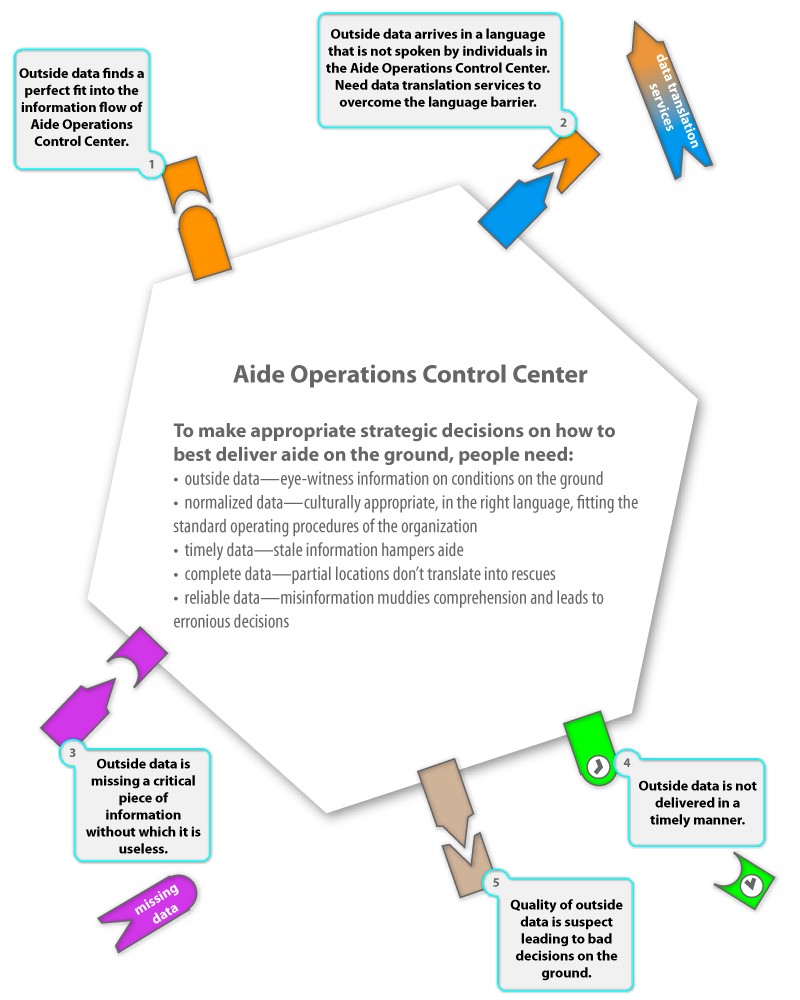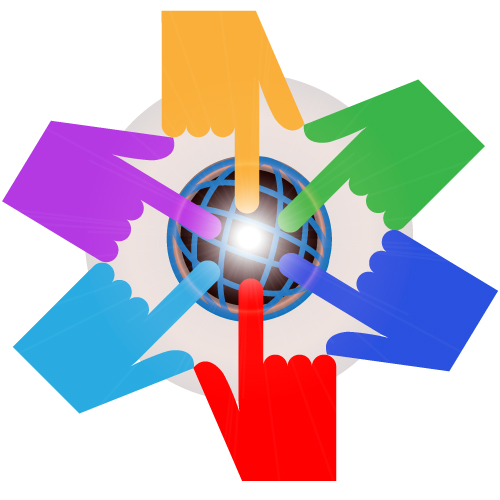By now, everyone who reads this blog probably heard of the “Marshmallow Temptation Test”. The test is designed to check a kid’s ability to resist eating one marshmallow right away if told that he/she could have two in a little while. There is a strong correlation between those who can wait and avoid the temptation of eating the single marshmallow, and the those who grow up to be more successful (than the kids who give into temptation and eat the one marshmallow). The basic setup is simple. Place a kid in a room with a single marshmallow on the plate and tell the kids that in just a little while, the researcher will be back with the second marshmallow which the kids can have ONLY if the first one is still on the plate! Enjoy the video! Note: this is about attention controls; about developing coping strategies early on to postpone rewards; about controlling for impulsive behavior.
Tag Archive for problem solving
Pipsqueak Articles, Users
Washing Machines and Education
by Olga Werby •
Hans Rosling is a professor of International Health at Karolinska Institute in Stockholm, Sweden. (He has been featured on this blog before—“No More Boring Data”.) For me, the most important point Dr. Roseling makes in this TED presentation is that time-saving technology raises the general level of education in the community and women in particular.
Background Knowledge Errors, Cultural Bias, Group Decision Errors, Mental Model Traps, Misapplication of Problem Solving Strategies, Pipsqueak Articles, Product Design Strategy, Scaffolding
Knowledge, Context, & Expectation
by Olga Werby •

These are three necessary components of any product design: Knowledge: the background information that forms the foundation of product design Context: the ecosystem in which the product will be used Expectation: the alignment of goals between product creators and the users for which it was designed A failure to fully understand any of the above variables results in errors that propagate throughout the product system. But what if the product is disaster preparedness? Consider the design of an evacuation plan ahead of a disaster. You would need to understand the what kinds of damage the disaster is capable of wrecking; the probabilities for each outcome; the people and the ecosystem in which the disaster will occur; and expectations of all the participants in the evacuation plans. Tsunami and The Zoo A few years ago, I was teaching a fifth grade science class where we were discussing the possible damage from a tsunami in San Francisco (we just visited the Bay Model). The problem I posed to the students was to design a reasonable evacuation plan for The San Francisco Zoo animals. The Zoo lies on the tsunami flood plane, and as far as we knew there was no plan for…
Conceptual Design, Pipsqueak Articles, Product Design Strategy, Scaffolding
Information Scaffolding
by Olga Werby •

Here’s another way of thinking about crisis mapping as an ecosystem or a cell with a membrane allowing certain information to enter while keeping other out. Some data has data “receptors” in the organization and thus “gets in”. But some information doesn’t and some just doesn’t have the right format: wrong language, incomplete information, time delay, low quality, etc. Please let me know your thoughts on the communicative value of this illustration. Thank you! And here’s how Ushahidi can help.
Attention, Conceptual Design, Flow, Pipsqueak Articles, Product Design Strategy, Scaffolding
Toilet Games
by Olga Werby •

If you have small children…boys, you are undoubtably familiar with things like: “My Wee Friend”; “Piddlers Toilet Targets for Potty Training”; “Potty Training Targets – Look like real targets!”; “Tinkle Targets for Boys”; “Wee Wee Pals”; or “On Target Infant Toilet Training Balls” from Amazon. Problem: boys have to learn to aim; boys attention span is shorter than the time it takes to empty their bladder; Solution: make going to the bathroom fun; design an activity that extends the attention and improves aim; The conceptual design is pretty straightforward: align the goals of the parents (teaching bathroom skills) with the goals of a toddler (have fun) to improve the toilet experience for all concern–basic goal alignment! Unfortunately, the problem doesn’t seem to go away as these boys grow up. Product design to the rescue! The Urinal Lips design uses the same product design strategy: make aiming fun! What sign on the walls of the bar’s men’s room couldn’t achieve, a playful design did–these men’s room stay clean. One Step Farther… While attention controls might lag during a long bathroom break, video games seem to have a tighter control over attention. So welcome to the future of urinals: These are the…
Conceptual Design, Cultural Differences, Pipsqueak Articles, Product Design Strategy
ICT & Human Rights: A Round Table Discussion at IADIS 2011 Conference
by Olga Werby •

IADIS conference on ICT, Society and Human Beings, Rome, July 24-26, 2011 Proposal for a Joint Multi-conference Session Title: ICT and Human Rights: A Round Table Chair/Organizer: Olga Werby Background and Purpose Information and Communication Technologies (ICT)—internet, web, and social media—are fast becoming a comprehensive repository and soon an archive of human knowledge. With access to ICT, an individual can become informed on everything from healthcare issues to civic problems to legal concerns. One hundred years ago, people were discussing the need for basic literacy and its impact on the human condition. Today, we should be discussing digital literacy and access in the same way. Digital literacy can be seen as a basic human right. Individuals can also impact society, react, and reach out. ICT is both a powerful tool for materializing human rights and is also challenging human rights. I propose a Round Table Session, which is open to all participants of IADIS multi-conferences, to be titled “ICT and Human Rights.” This session would provide a forum on cross-disciplinary research and development, and action, in the fields of what rights are important and can be better facilitated by ICT in: e-Democracy, ICT and Society, e-Culture, e-Health, e-Learning, human-computer interaction,…
Anchoring Errors, Background Knowledge Errors, Causal Net Problems, Diagnostic Errors, Errors, Mental Model Traps, Pipsqueak Articles
Alternative Medicine, Placebos, and Rasputin
by Olga Werby •

In the last few weeks there has been several articles and studies published on the effectiveness of alternative medicines and placebos: “Placebos Help Patients Even Without Faking It, Scientists Say“; “Sugar Pills Help, Even When Patients are Aware of Them“; and “Alternative remedies ‘dangerous’ for kids says report“; “Doctors warn over homeopathic ‘vaccines’“. The gist of these beliefs derives from several factors: People Tend to Get Better: most of us get well over time even without medical intervention. Colds pass; flues do too. Most infections heal with time without the aid of antibiotics. Evolution have provided the human race with a great immune system. Medicine helps, we get better faster with treatment. But in most cases, we survive. So when you hear someone recommend an alternative medicine and predict that a cold will go away in three days, chances are you will get better. And over time, we the people develop p-prims (folksy wisdoms) that link health with alternative tratments. “Natural Chemicals” p-Prims: there is a strong belief among industrialized societies, at the present time, that “natural” is better for us than “artificial”. There are many sources of this belief, too many to cover in this short article. And somehow,…
